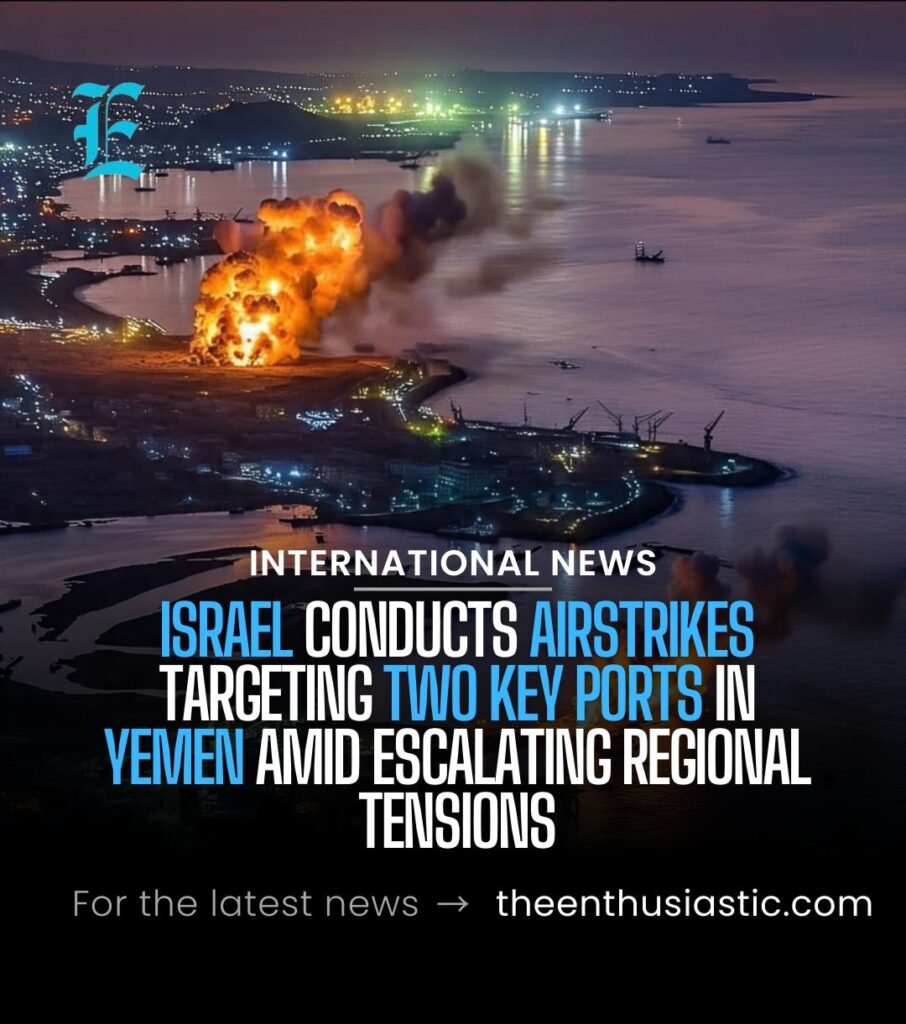Israel Conducts Airstrikes Targeting Two Key Ports in Yemen Amid Escalating Regional Tensions

Table of Contents
Israel Launches Strikes on Yemeni Ports After Houthi Missile Attacks
In a dramatic escalation of regional tensions, Israel has launched airstrikes on two key ports in Yemen—Hodeidah and as-Salif—targeting what it described as military infrastructure used by the Iran-backed Houthi rebel group. The Israeli military confirmed the strikes on Friday, citing the ports’ alleged role in the transfer of weapons and the launching of missile attacks against Israel.
The offensive follows a series of Houthi missile launches that have intensified since October 2023, with the group claiming its attacks are in solidarity with Palestinians amid Israel’s military operations in Gaza. Despite a recently brokered ceasefire between the Houthis and the United States, which temporarily halted attacks on Red Sea shipping routes, Israel was not a party to that agreement and has vowed to defend itself independently.
According to the Israeli Defense Forces (IDF), the targeted strikes were aimed at “terrorist infrastructure” believed to be facilitating the Houthi missile campaigns. Houthi-affiliated Al Masirah TV also confirmed the attacks but did not provide immediate information on casualties or structural damage.
Netanyahu and Gallant Vow Escalation
In a strongly worded statement, Israeli Prime Minister Benjamin Netanyahu warned the Houthis and their backers, particularly Iran, that Israel would intensify its military response if attacks persist. “We will not stand idly by and allow the Houthis to harm us. We will strike them with greater force, including at their leadership and all the infrastructure that enables them to attack us,” he said.
Israeli Defense Minister Yoav Gallant echoed this stance, delivering a direct warning to Houthi leader Abdel-Malik al-Houthi. Gallant declared that if attacks continue, al-Houthi would be targeted personally. “We have shown we can reach Hamas commanders and Hezbollah leaders. Abdel-Malik al-Houthi is no exception,” Gallant stated, referring to recent high-profile assassinations attributed to Israeli operations.
Retaliation Policy and Regional Implications
Tensions have surged in the region since the collapse of a ceasefire agreement between Israel and Hamas in March. According to Gaza’s Health Ministry, nearly 3,000 people have died in the territory since the resumption of hostilities. In parallel, the Houthis have launched at least 34 missiles toward Israel in recent months, escalating fears of a broader regional conflict.
In response, Israel has implemented a strict retaliatory policy: for every missile launched by the Houthis, there will be an Israeli airstrike. This posture was underscored earlier this month when the Israeli military struck the main airport in Sanaa, Yemen’s capital, causing significant damage and casualties.
Despite the U.S.-Houthi ceasefire, Israel’s recent actions signal that it is pursuing its own course of defense and deterrence, particularly in light of increasing threats from multiple fronts, including Hezbollah in Lebanon and Iranian proxies across the Middle East.
Future Outlook
As the situation continues to evolve, analysts warn that ongoing tit-for-tat exchanges risk sparking a wider regional conflict, drawing in additional state and non-state actors. While the U.S. has managed to pause some of the Houthis’ Red Sea operations, Israel’s continued airstrikes—and warnings of further action—highlight the fragility of the region’s security landscape.
For now, the message from Jerusalem is clear: missile attacks from Yemen will be met with swift and forceful retaliation.
